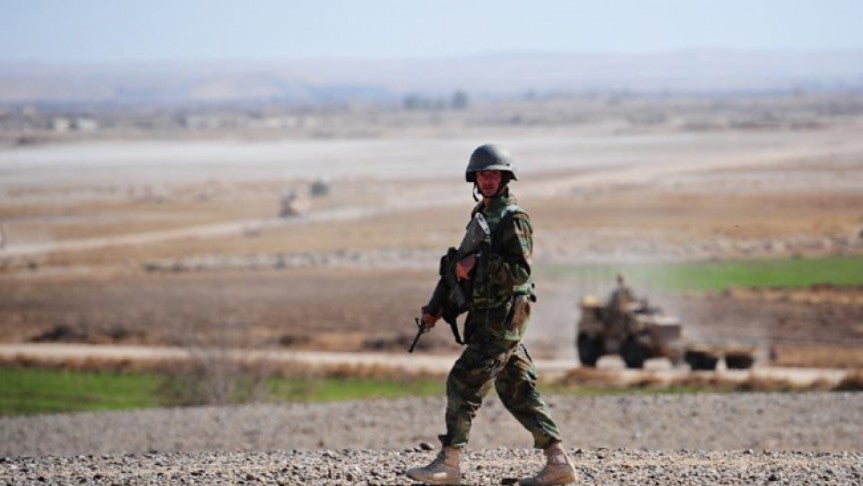Roadside bomb kills 14 family members

Kandahar, Afghanistan: A roadside bomb killed at least 14 members of an Afghan family, including women and children, in the country’s volatile south Saturday, officials said, in the first major attack in the Muslim holy month of Ramadan.
No group immediately claimed responsibility for the attack in the Marja district of Helmand province, a hotbed of Taliban insurgents who are intensifying their annual summer offensive.
The militants had recently rebuffed requests from senior Afghan clerics to halt attacks during the fasting month of Ramadan even as a surge in violence has sent civilian casualties soaring.
‘Fourteen civilians were killed and five others wounded in an IED (improvised explosive device) blast in Marja district of Helmand province. All of them were from the same family,’ Helmand deputy governor Mohammad Jan Rasolyar told AFP.
He said their vehicle struck the IED just before Iftar, the evening meal when Muslims break their fast during Ramadan, which began on Thursday.
Helmand police chief Nabi Jan Mullah Khel claimed a higher toll, saying 16 family members were killed as they were returning to their home in Marja two days after fleeing a possible military offensive in the area to flush out insurgents.
Haji Fateh Mohammad, a tribal elder from the region, said he counted 15 bodies as he helped retrieve them from the twisted carcass of the vehicle.
Marja district in Taliban-infested Helmand province was the focus of a major US-led military offensive designed to clear out the insurgent group in early 2010.
Surging civilian casualties
The insurgents launched a countrywide offensive in late April, stepping up attacks on government and foreign targets in what is expected to be the bloodiest fighting season in a decade.
The Taliban, who promised to ‘safeguard’ civilian lives during their offensive, are known to distance themselves from attacks that result in high civilian casualties.
But the surge in insurgents attacks has taken a heavy toll on ordinary Afghans, according to the UN mission in Afghanistan.
Almost 1,000 civilians were killed during the first four months of this year, a sharp jump from the same period last year, it said.
Afghan authorities have repeatedly tried to jumpstart talks with the Taliban in the hope of ending the 13-year conflict, but the militants have set tough conditions, including the withdrawal of all foreign troops in Afghanistan.
NATO’s combat mission formally ended in December but a small follow-up foreign force of about 12,500 mainly US troops has stayed on to train and support local security personnel.
President Ashraf Ghani’s government has drawn criticism for failing to end growing insurgent attacks, which critics partly blame on political infighting and a lengthy delay in appointing a candidate for the crucial post of defence minister.
Ghani last month nominated Mohammad Masoom Stanekzai, a top official in the government body overseeing the country’s peace process, for the job.
The post had been left vacant for months due to disagreements between Ghani and his chief executive and former presidential election rival, Abdullah Abdullah, but Stanekzai is expected to be confirmed by Afghanistan’s parliament soon.
The Afghan government and the US-led international coalition fighting the Taliban are also keeping a wary eye on the Islamic State group, which has grabbed large swathes of Syria and Iraq in a brutal offensive.
The Islamic State group is in an ‘initial exploratory phase’ in Afghanistan, the US Pentagon said in a recent report to Congress, noting the Taliban retained its resilience in the war-torn country.
On Tuesday the Taliban warned IS’s leader against waging a parallel insurgency in Afghanistan, after a string of defections and reported clashes with militants loyal to the Islamic State group.

 AFP
AFP



